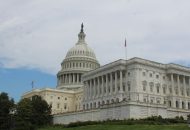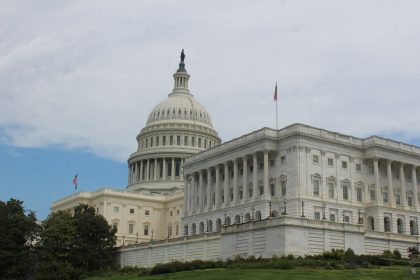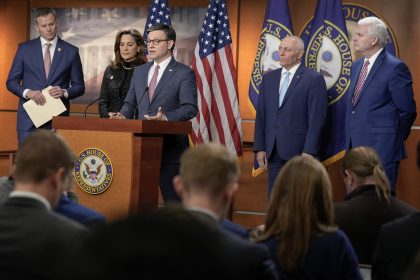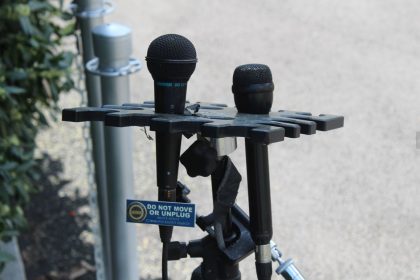Bipartisanship Is Alive and Well on Capitol Hill, Index Finds
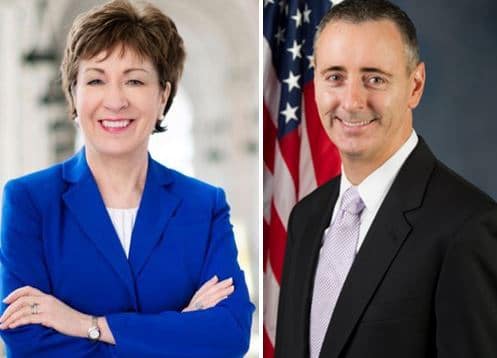
WASHINGTON – Despite the rancor one hears consistently on cable news and in the Twittersphere, bipartisanship is alive and well among rank and file members of Congress, according to a new survey conducted by The Lugar Center and the McCourt School of Public Policy at Georgetown University.
The organizations’ Bipartisan index is a non-partisan measure of the degree to which members of the Senate and House work across party lines to produce meaningful legislation.
The new index looks at 2019, the first year of the 116th Congress, and suggests that during that time House Democrats were more likely to reach across the aisle to Republicans, while the exact opposite was true in the Senate.
“Many functions and decisions within Congress remain bitterly partisan, especially those pitting the leadership of the parties against one another,” said Dan Diller, policy director of the Lugar Center.
“Yet the Bipartisan Index continues to find an undercurrent of bipartisan cooperation between individual members of Congress on introducing and co-sponsoring legislation,” he said.
The Bipartisan Index incorporates data from all Congresses since 1993.
It measures how often a member of Congress introduces bills that succeed in attracting co-sponsors from members of the other party, and how often they in turn co-sponsor a bill introduced from across the aisle. The Index excludes non-binding resolutions and ceremonial bills.
It is based on a formula applied uniformly to all members. No subjective judgments are made about individual members or bills.
On the House side, Rep. Brian Fitzpatrick, R-Pa., finished first among the 437 House members and set a new Bipartisan Index record for the highest one-year score ever recorded in his chamber — 5.385.
His impressive mark was built on his co-sponsorship of 673 bills offered by the other party. In 2019, no one else in the House had more than 237 bipartisan co-sponsorships.
Rounding out the Top 25 in the chamber, in order from 2 to 25, are:
John Katko, R-N.Y., Peter King, R-N.Y., Josh Gottheimer, D-N.J., Don Young, R-Alaska, Chris Smith, R-N.J., Ron Kind, D-Wis., Collin Peterson, D-Minn., Jennifer Gonzalez, R-P.R., David McKinley, R-W.Va., Steve Stivers, R-Ohio, Lee Zelden, R-N.Y., Rodney Davis, R-Ill., Elise Stefanik, R-N.Y., Joe Cunningham, D-S.C., Abigail Spanberger, D-Va., Tom Reed, R-N.Y., Adam Kinzinger, R-Ill., Derek Kilmer, D-Wash., Jeff Van Drew, D-N.J. (later switched parties), Tom O’Halleran, D-Ariz., Anthony Brindisi, D-N.Y., Peter Welch, D-Vt., Fred Upton, R-Mich., and Michael McCaul, R-Texas.
On the Senate side, Sen. Susan Collins, R-Maine, extended her unprecedented run as the most bipartisan Senator, topping the Index’s rankings for the seventh consecutive year. Her score of 4.061 in 2019 is the highest one-year Senate score in the history of the Bipartisan Index.
Rounding out the Top 25 in the Senate, in order from 2 to 25, are:
Lisa Murkowski, R-Alaska, Cory Gardner, R-Colo., Rob Portman, R-Ohio, Kyrsten Sinema, D-Ariz., Martha McSally, R-Ariz., Shelley Capito, R-W.Va., Bill Cassidy, R-La., Marco Rubio, R-Fla., Chuck Grassley, R-Iowa, Jon Tester, D-Mont., Gary Peters, D-Mich., Jerry Moran, R-Kan., Dan Sullivan, R-Alaska, John Boozman, R-Ark., John Cornym, R-Texas, Steve Daines, R-Mont., Roger Wicker, R-Miss., Kevin Cramer, R-N.D., Maggie Hassan, D-N.H., Roy Blunt, R-Mo., Amy Klobuchar, D-Minn., Doug Jones, D-Ala., Chris Coons, D-Del., and Ron Wyden, D-Ore.
“Today, our interdependencies are more obvious and urgent than ever,” said Maria Cancian, dean of Georgetown’s McCourt School of Public Policy.
“While hyper-partisanship continues in Congress, our latest Bipartisan Index — a nonpartisan and data-driven tool — points to a crosscurrent of cooperation among lawmakers. This offers hope, as our future depends on our ability to work together across the aisle and across differences for the common good,” she said.
In 2019, 58 Senators earned a positive bipartisan score — meaning they scored better than the average Senator in their circumstances during the previous 13 Congresses (1993-2019). This is a slight improvement over the 115th Congress when 53 senators scored above the historical average.
On the House side, 187 members in 2019 scored above the historical average compared to 163 members who achieved this distinction in the previous Congress. However, despite this improvement, a majority of House members — 250— were below the historical average.
In the Senate, both Republican and Democratic Senators scored above the historical average, and Republican Senators had a higher cumulative score than their Democratic counterparts.
In the House, however, Democrats outscored Republicans by a narrow margin, with both parties scoring slightly below the historical average.
House Republicans occupied seven of the top ten House scores, but they also had the nine lowest scores in the body, with Rep. Gary Palmer, R-Ala., finishing last.
For the fifth year in a row, former presidential candidate, Sen. Bernie Sanders, an independent who caucuses with the Democrats, had the lowest score in the Senate.









